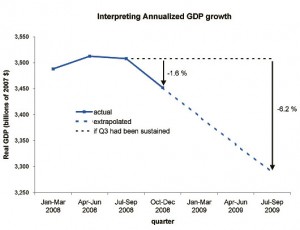
Everyone loves an end-of-year top ten list, and we can pick from this Biggest Tech Lies of 2018 almost at random:
5. If we’re bigger, it will create more competition. – Everyone who runs a pseudo-monopoly
The most devastating merger of the year was AT&T and Time-Warner’s unholy union into a media machine with a telecom background operating under an FCC with seemingly no interest in policing anti-competitive practices. We still don’t know what the worst of the consequences will be, but we’ve already seen it strong-arm rival cable providers into paying more for HBO and the shut down of a beloved streaming service that wasn’t too big to fail. When AT&T argued that it needed to be bigger in order to create more competition, no one thought that would mean it just wants to plan a bunch of streaming services that will compete with each other and line AT&T’s pockets no matter which one you choose.
We can argue the legality of big companies merging with big companies until we’re blue in the face, but bigness is one of the biggest problems in the world today. The bigger companies are, the more power they acquire and the more difficult it becomes to hold them accountable. Current antitrust regulations have proven inadequate, and they are even more useless when the FTC is so bad at enforcing them.
Companies like Facebook and Twitter are too big to enforce their own policies, Amazon is too big for small businesses to compete against, and telecoms are so big they write laws prohibiting your city from building its own network. Venture capitalists now want to feel that your startup can become either accomplish the impossible feat of toppling one of these giants or that you at least have a solid plan to be acquired by one of the big boys. Bigness doesn’t create competition, it pulls everything into a black hole that’s hostile to consumers and citizens around the world.
It’s practically every problem incarnate, joined as one: Giant companies. By existential ethos, they cannot care about workers, conditions or any negative externalities of the doing of their business. Even the construct ‘big problem’ is itself a kind exacerbated by terminology. In this way, the supposed empirical challenges of capitalism should have actually been understood as a roadmap, as they have been by some, no doubt. But these roads are a leading to a fundamental weakness, a dysfunction in the system itself. It could have been that this way of organizing an economy would work if and only if monopolies and all other rule violations were avoided and all participants observed the rules for the health of the system, if not for the board itself. But the entire endeavor has been predicated instead on getting away with as much transgression as possible. “Tie it up in court for years, damn the torpedoes.” There’s some corollary with ‘Ships being safer kept in the harbor,’ but, we’ll work on that.
Image: Battle of Mobile Bay, by Louis Prang

 Hilarity ensues as the Trump ministration launches a trial balloon for
Hilarity ensues as the Trump ministration launches a trial balloon for 